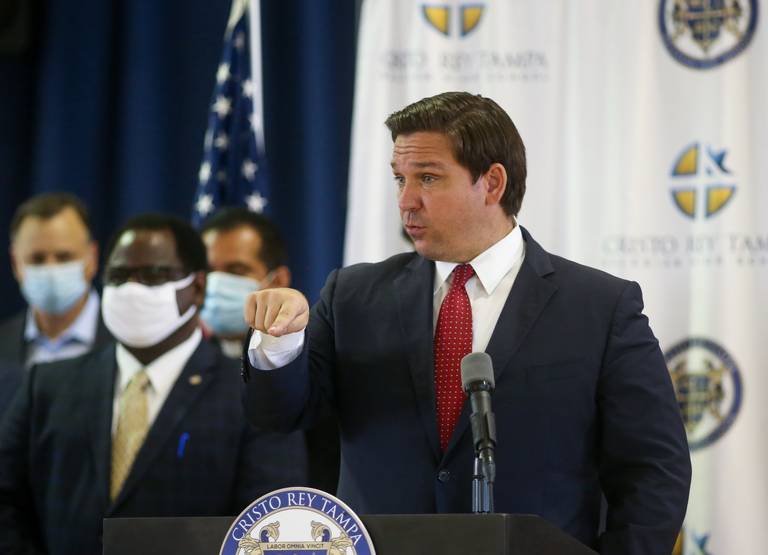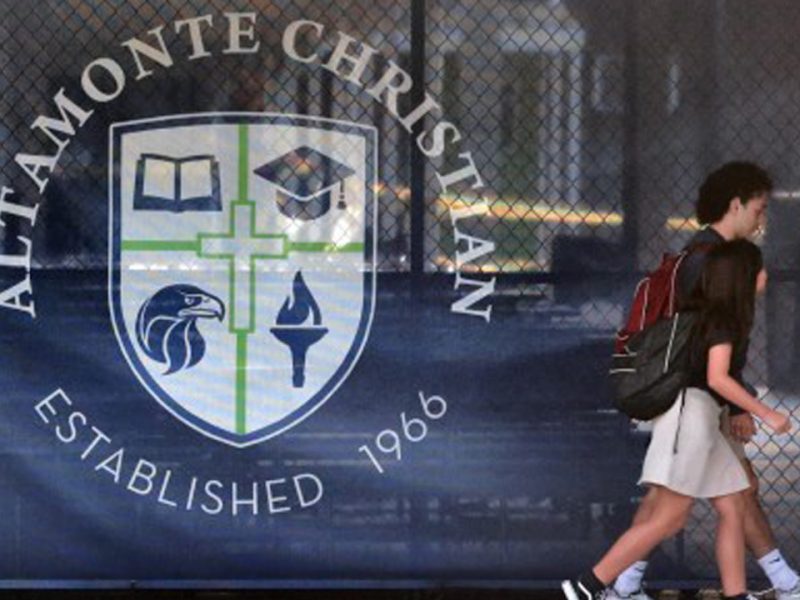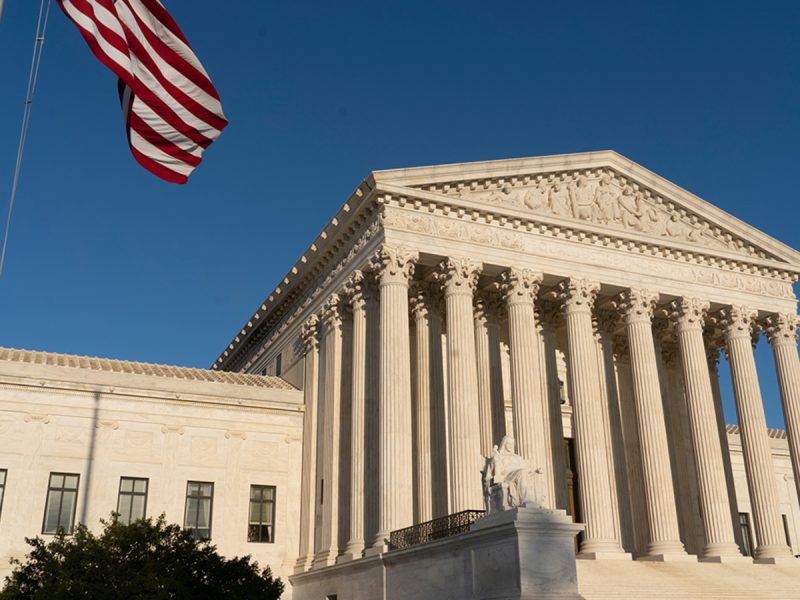DeSantis signs bill that further expands Florida’s school voucher program
Miami Herald | June 25, 2020 By Jeffery S. Solochek
Gov. Ron DeSantis signed into law on Thursday legislation that further expands the state’s multi-million-dollar school voucher and scholarship programs.
He used Cristo Rey Tampa Salesian High, a private religious school in its fourth year that serves primarily low-income teens, as a backdrop for the official action.
“We worked really hard this year to deliver for students and families,” DeSantis said. In addition to providing money for teacher pay, “we also were mindful of a lot of our low-income families that needed a little help to get their children into schools that best meet their needs.”
The measure (HB 7067), which went down to the final hours of the 2020 legislative session, makes it easier for families to become eligible for financial support to attend a private school. And it quadruples the rate at which vouchers would grow annually.
State Sen. Manny Diaz, a Hialeah Republican who helped steer the measure through the Legislature, noted that lawmakers could have stopped after 2019, when they created a taxpayer-funded voucher program.
“But the demand is there. We don’t want to leave any families out,” Diaz said. “We’re going to push forward until every family has the opportunity … to pick the school that’s right for them.”
DeSantis said this bill resonated for him because it matters to children and parents in a way that others do not. He introduced Aidan Montero, a Cristo Rey graduating senior who praised the state for allowing him to attend a private school and become the first in his family to go to college.
St. Petersburg parent Chikara Parks also thanked DeSantis and lawmakers for the programs. Her four children have used tax credit scholarships to attend private schools.
“Thank you for making me and my family count,” Parks said. “The visions are possible when there are supportive believers.”
A DESANTIS PRIORITY
Since taking office, DeSantis has actively supported school choice initiatives. A year ago, he enacted the “Family Empowerment Scholarship,” setting aside $130 million in state funds to help up to 18,000 low-income children pay for private education.
That scholarship program differed from the state’s other programs in that it relied on taxpayer money to support the families rather than being financially backed by corporate donations that never entered the state coffers. Donors received tax credits for their contributions.
Those tax-credit scholarship programs faced several lawsuits, but courts found them constitutional because the money remained outside state government. That changed with the Family Empowerment voucher, and critics have vowed to fight it in court much as they fought Jeb Bush’s 1990s-era voucher program.
They have yet to file any complaints.
Bush issued a statement Thursday cheering DeSantis’ progress in promoting school choice and vouchers.
“By providing the nation’s largest and most robust array of educational options, Florida policymakers can be proud of continuing to invest in proven policies that best prepare students for success in school and in their future,” Bush said.
The priority for the vouchers would still be given first to students whose families make $47,638 or less (for a family of four), then families who make $77,250 or less. But after most of the vouchers have been distributed, if there is still money left over, families making up to $83,688 would also be eligible.
Concerns about inequities from the existing system led to a spirited debate in the spring.
Reports from the Orlando Sentinel discussed how some religious schools accepted scholarship funds yet discriminated against LGBTQ youth and employees. Other concerns focused on how the state does not hold the private schools to the same academic accountability standards as public schools.
Those issues resulted in heated floor debate, as some Democratic lawmakers led by Rep. Carlos Guillermo Smith advocated amendments to require such things as anti-discrimination policies for schools that accept the scholarship money. Those efforts never passed.
On the Senate side, Sen. Tom Lee, a Hillsborough County Republican, contended that the programs needed more oversight, too. He pushed an amendment that would have required the Department of Education to annually report more details about the system.
Lee attended the bill signing, along with several other lawmakers from both parties.
BIPARTISAN SUPPORT FOR BILL
A bipartisan majority, in fact, pushed the bill to its successful end. Several Democrats joined that vote, noting that the programs benefit children and families in low-income and minority communities.
The criticisms did not disappear with the bill’s passage.
Kathleen Oropeza, a Central Florida parent activist who sued the state to demand improved public school funding, called the bill “tone deaf” — especially in today’s economic hard times, when public education needs added support to serve students.
“It’s appalling that we’re putting millions and millions of dollars into a group of private schools that have no accountability and that are still free to discriminate,” she said.
If families want to use private schooling, that’s fine, Oropeza said. “I don’t think tax dollars should be used to pay for it.”
Rep. Smith, an Orlando Democrat, shared the sentiment.
“Expanding Florida’s $1 billion private school voucher program is as bad for our budget as it is for educational standards in our state,” Smith said via text message. “Given the major revenue shortfalls we are dealing with, we cannot afford to bleed more money out of our public schools.”
DeSantis said he expected to roll out more education initiatives later this summer, after completing this round of bill signings and finishing the budget.
Tampa Bay Times staff writer Steve Contorno contributed to this story.





